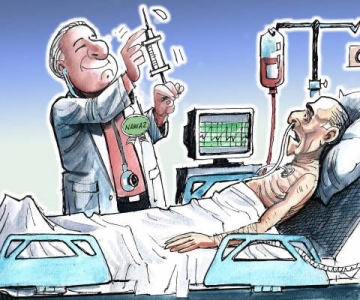My paper published by CIDOB – Barcelona Centre for International Affairs
Even after more than six decades since its inception, Pakistan has been unable to establish its writ across geographical boundaries and several of its territories remain ungovernable. Analysts have noted that such regions comprise nearly 60% of Pakistan’s territory.1 this phenomenon has consequences for regional stability and affects peace and governance efforts in neighboring Afghanistan, Iran, Central Asian Republics, and India.
The reasons for lack of governance in Pakistan differ across regions.
In some cases, the non-state actors have succeeded in establishing their own writ, emerging as alternate power centers that have supplanted the role of state. the most notable of these are Federally administered tribal areas (Fata), Balochistan, southern Punjab and to some degree, the megapolis, karachi.
This paper seeks to examine three such regions, i.e. Fata, Balochistan and south Punjab, where the authority of Pakistani state has diminished to varying degrees and where non-state actors effectively govern these areas. In part, this situation is a result of willful abdication of authority by the central state (Fata), insurgency and regional dynamics (Balochistan) and nurturing of militant networks (south Punjab). the paper looks at the three regions in some detail, outlining the historical evolution of governance systems (or lack thereof) and the current situation, which has serious implications for Pakistan’s security and regional stability.
1. FATA & Areas of Khyber-Pakhtunkhwa
Background: The Federally administered tribal areas (Fata) of Pakistan is a sub-autonomous tribal region in the northwest of Pakistan, bordering Afghanistan on its west, Pakistan’s Khyber-Pakhtunkhwa (KPK) province on east and Balochistan on south. the area comprises seven agencies (tribal regions) and six Frontier Regions. It is home to a population of nearly 4.5 million3, consisting mainly of Pashtun tribes, who also inhabit eastern parts of Afghanistan. Fata is also the poorest of Pakistani regions, where nearly 50% of the population lives below the poverty line. years of war and insurgency have wreaked havoc with social serv- ices and impacted the social and physical infrastructure of the area.
Historically, the colonial state did not build governance institutions in this region and administered through a curious mix of traditional structures such as jirga, overseen by the central British authority through the infa- mous law, the Frontier Crimes Regulations (FCR)4 of 1901. the British used the law as a means of subjugation to ‘discipline’ the people of Fata and establish the writ of colonial authority across the region. after the independence in 1947, the FCR continued as the governance framework – with minor modifications – until 2011 when the Pakistani government initiated major reforms to its scope and application. however, in effect FCR reform is yet to be implemented and one can safely assume that the century-old law prevails.
Analysis of the present situation: The FCR is notorious for its repressive features against the people of Fata. It empowers the government to arrest anyone, without specifying crime, and permits collective punishment of family or tribe for crimes of individuals.Punishment can be meted out by unelected tribal jirgas, whose members are mostly nomi-nated by centrally appointed political agents. The law restricts convicts against appeal to jirga verdicts (although commission can review a case) and gives sweeping powers to tribal councils to impose penalty in criminal cases. While the FCR does provide a code of conduct for jirgas, the latter have operated free of these regulations and have given verdicts not permitted by the FCR. Furthermore, this legal framework encourages discriminatory practices towards the local people, as it allows the government to restrict entry of Fata residents into the rest of Pakistan. the provisions of the FCR are clearly in violation of the Universal Declaration of human Rights and the Constitution of Pakistan. there have also been frequent calls from the superior judiciary of Pakistan to repeal the law.
After a century, Pakistan’s current democratic government has revised the FCR by introducing pro-democracy amendments and allowing political parties to operate in the tribal regions. the most important amendments to the FCR limit oppressive sections by allowing only close male members of offenders to be arrested, instead of whole tribes. Women and individuals of minor age are barred from arrest. the amendments seek to curtail the powers of anachronistic laws by providing basic civil rights to the people of Fata. For the first time, the right of appeal has been granted to the local population against decisions of the political agent. The Political Parties Order of 2002 allowed political parties to form and operate in the region, making room for some form of political participation to people who have enjoyed little or no constitutional rights.
The amendments were welcomed by civil society and hailed as a step towards incorporating Fata within the democratic framework of the rest of the country. However, they are yet to be fully implemented. some tribal elders and lawyers have criticized the minor changes demanding that jurisdiction of high courts and the supreme Court must be extended to Fata and that the area should be governed according to the 1973 Constitution, rather than the FCR.
The colonial-era administrative and judicial systems are unsuited to modern governance. the absence of credible and formalized participation…
Read the full document here–>Pakistan- Ungoverned Spaces



